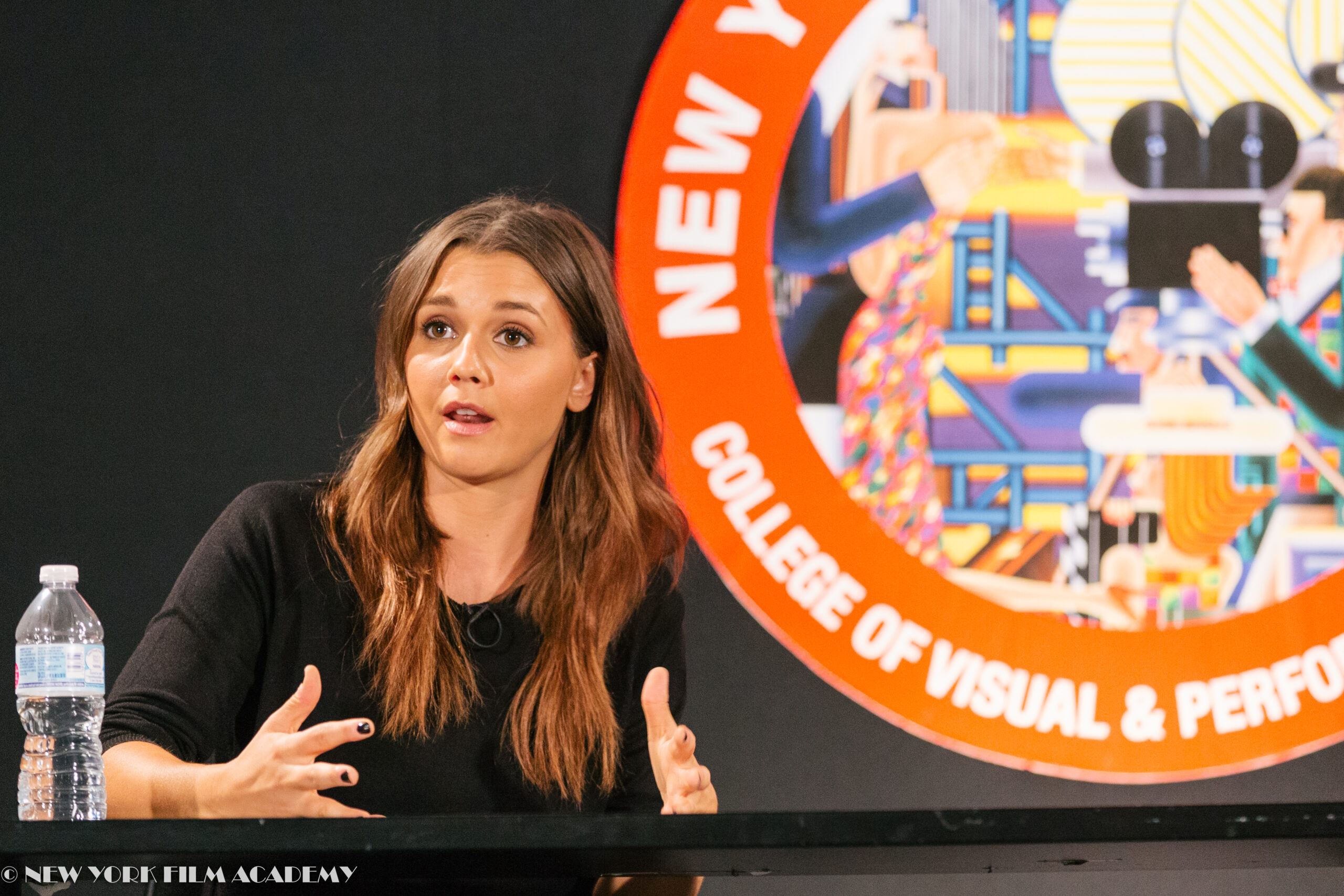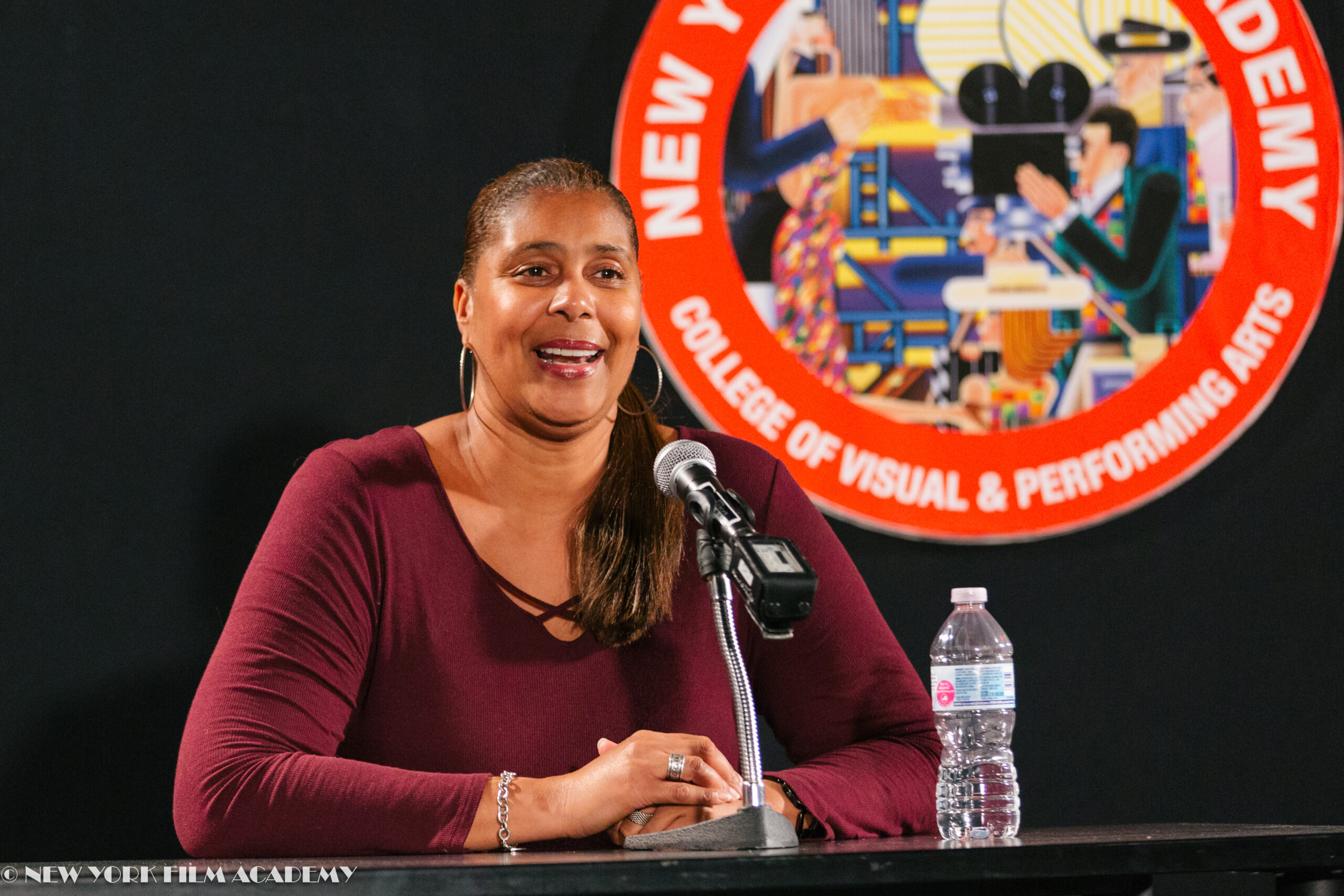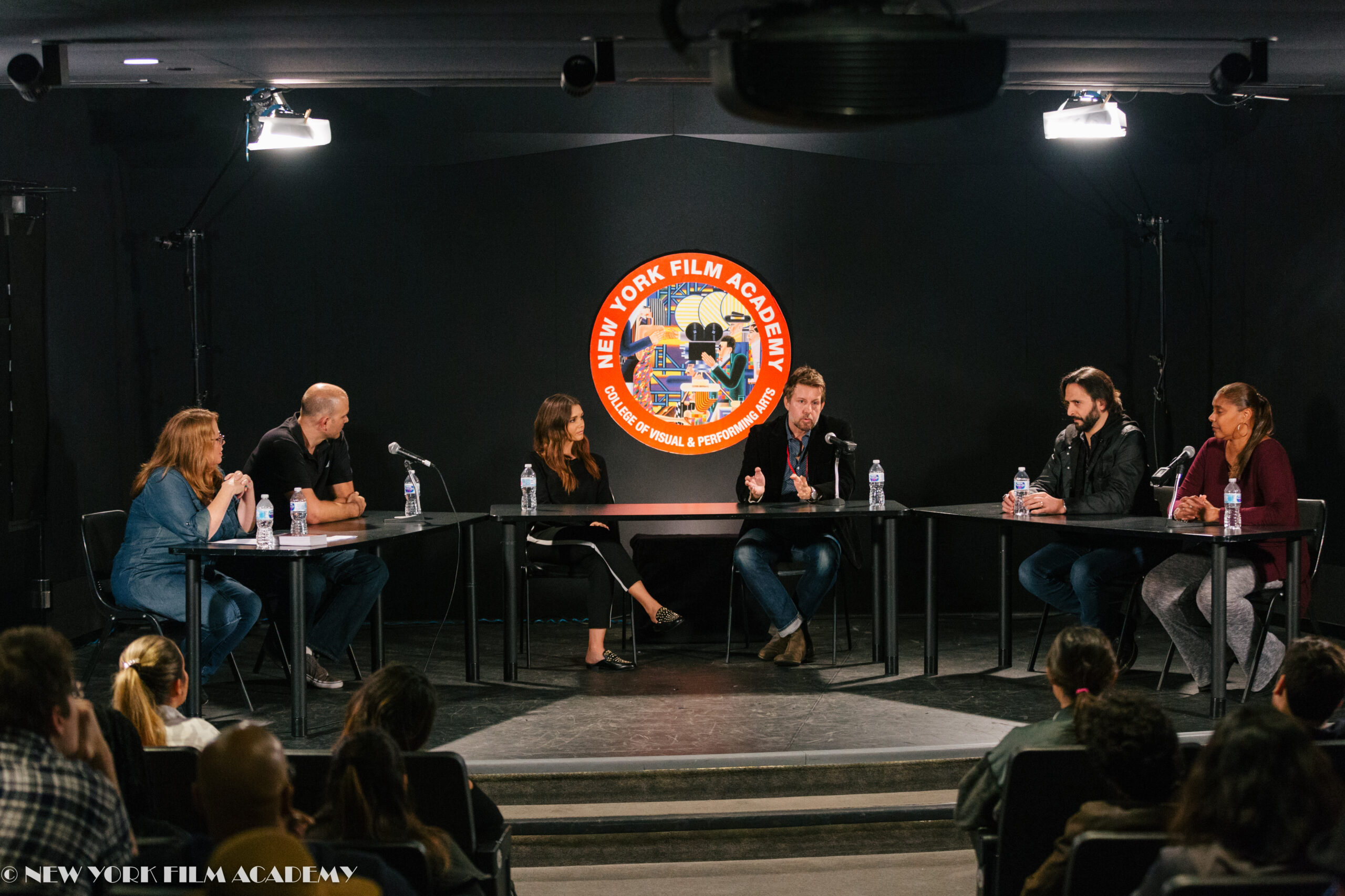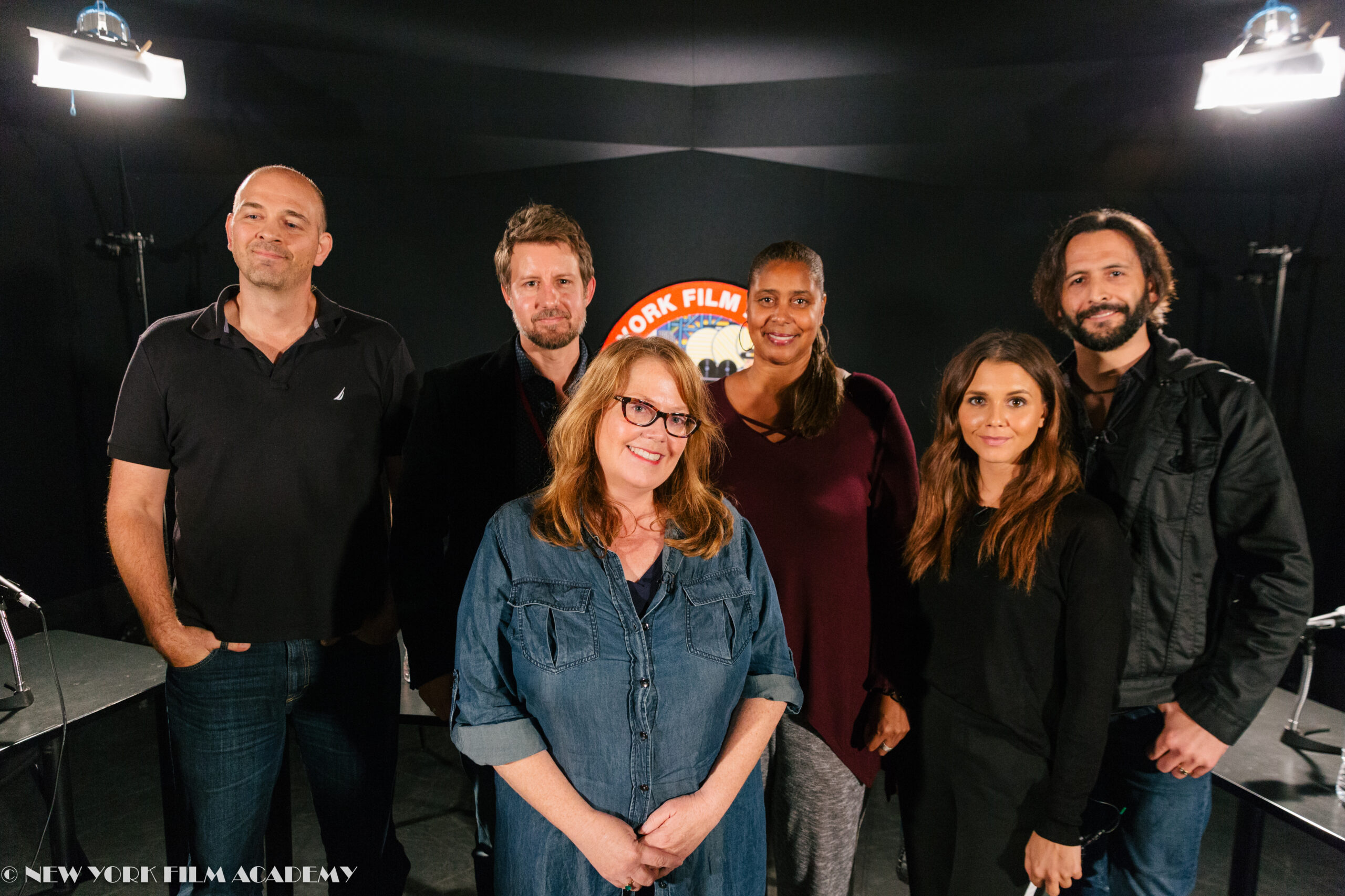Last month, New York Film Academy (NYFA) Film Festivals Advisor and Liaison Crickett Rumley brought an expert panel to the NYFA Los Angeles campus for an in-depth discussion on the process of getting a film into festivals.
In her opening remarks, Rumley shared that while many NYFA students are interested in applying to film festivals, she found that not many had actually attended one. The panel of experts was formed to help demystify what can be an intimidating world for newcomers, and help answer their questions. “We need to start talking about film festivals,” Rumley said. “Los Angeles has a lot of festivals, so we have no excuse to not be attending and submitting.”
Sharing their insights and experiences with NYFA students were industry experts including producer and NYFA Chair of Industry Lab Kim Ogletree, Senior Cinematography Instructor Matt Kohnen, Emmy Award nominee Alexandra Chando, NYFA Senior Directing Instructor James Rowe, and NYFA alumnus Raphael Bittencourt. Each panelist has premiered a film at major festivals including Sundance, LA Shorts Film Fest, Shanghai Film Festival, and the Austin Film Festival.
Kickstarting the discussion, Crickett asked the panel, “Why should you attend a film festival, even if you don’t have a film?”
Rowe began by sharing his reasons for attending the Toronto Film Festival as a non-participant. “I went as a scholar delegate for NYFA to kind of scout things out and see what the landscape is right now for short films in particular.”
Chando, who represents the Mammoth Film Festival’s Women in Film Initiative and is perhaps best known for her work in “As the World Turns,” pointed out the need for diversity and representation in film festivals across the board. Attendees, filmmakers, and festival organizers all play a role in supporting diversity in the film industry. “Recently, within the last year, I have seriously begun working on the other side of the camera,” she explained. “Especially now, there has been a big push for diversity and, of course, women being behind the camera.“
Encouraging diversity in film festival representation is a part of the reason why Chando was invited to be a part of the Women in Film initiative of the Mammoth Film Festival, which was founded by a NYFA alumna.
Rumley spoke about her experiences with Telluride, a renowned festival she began attending even before she had started making movies. She described the education as invaluable. “I was learning so much as a writer just by watching a ton of films,” she shared, “And I was able to watch them in a festival setting. I could figure out what kind of writer I wanted to be by exploring all of these international and independent domestic films.”

With thousands of film festivals worldwide, these dynamic events can serve as an essential launchpad for up-and-coming filmmakers. Genre film festivals provide an especially great environment for new cinema voices to be discovered.
“The major festival will take everything; drama, narrative, documentary,” said Kohnen, “But then, there’s this whole other subset of festivals that are just genre.”
Choosing to submit to a genre festival can help a film find a more specific audience and make valuable connections with likeminded people in the industry. Knowing his way around the festival circuit helped spark the chain-reaction of success that Kohnen enjoyed with his 2007 film “Wasting Away,” also known as “Aaah! Zombies!” The film won the audience award for Best Film at ScreamFest, and after that its sister festivals began seeking opportunities to screen the film, too.

For his part, Bittencourt said he used his time at film festivals as an opportunity to observe how different audiences connected with his film as well as to forge connections within the industry.
“It gives me a sense of where I’m going,” he said. “It was part of my strategy to use two different kinds of film festivals to get more attention on my film. … It’s a huge chance to defend your film and get to know other filmmakers. You can also meet the organizers of the festival.”
Bittencourt encouraged students that even if they may not have been chosen to screen their film in a particular festival, they can still try to shake hands with those in charge. “[Festival organizers] tend to be really sympathetic to you if they know who you are,” he said.
Ogletree agreed. She explained to students that film festivals provide opportunities not only for submitting work, but also for gaining direct access to creators from all walks of life. From her time behind the scenes in film festivals, she shared, “We were open to having discussions with students, with other executives, with producers and directors. At the time, folks would just bring their iPads up to speakers after the Q&A and show us their film. That was a way of getting their films out there without even being in the festival.”
With these networking opportunities in mind, Ogletree went on to highlight the marketing opportunities students should prepare for when attending a festival. “There are certain things you need,” she said. “You need a business card. You need both a press kit and an electronic press kit. You need to have the bios of your key crew members. You need to have conversations, and that’s not something I see happening a lot anymore.”
Ogletree suggests that when attending a festival with a family member or friend, students remember not to isolate themselves from what is going on. Instead, they should make sure to join outside conversations with members of the industry and to try and meet new people.
To help get the conversation started at film festivals, Ogletree noted that it’s important to think early and often about where the film will show and how best to promote it once it has aired. Gimmicks also don’t hurt, according to Ogletree, who says that it’s important to find ways to make your film stand out from the crowd at a festival. Hats, pins, and t-shirts are always great and inexpensive options. Budgeting for these products and preparing for film festival conversations should be something students bear in mind even in the pre-production stage of their film.
The New York Film Academy would like to thank Matt Kohnen, Alex Chando, Kim Ogletree, James Rowe, Raphael Bittencourt, and Crickett Rumley for participating int his in-depth discussion on film festivals.

